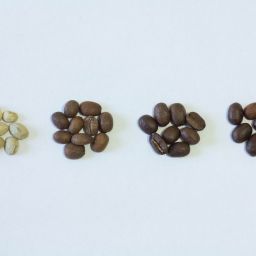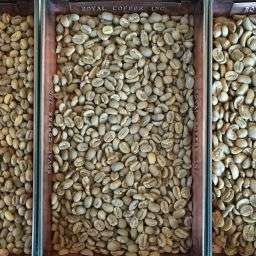
The allure of flavored coffee beans has captivated coffee enthusiasts worldwide, merging the robust essence of coffee with a myriad of enticing flavors. This fusion not only caters to diverse palates but also enriches the coffee drinking experience.
However, alongside its popularity, concerns regarding the health effects of flavored coffee beans have emerged. Critics question the safety of the additives used for flavoring and their potential health implications, sparking a debate that merits a closer examination.
What Are Flavored Coffee Beans?
Flavored coffee beans are created by infusing regular coffee beans with flavors after the roasting process. This infusion can be achieved through natural oils, spices, or chemical compounds designed to mimic specific tastes.
The flavors range from classic vanilla, caramel, and hazelnut to more adventurous concoctions like pumpkin spice, chocolate, and even seasonal specialties.
These flavored beans offer an alternative to traditional coffee by providing a sensory experience that caters to individual flavor preferences without altering the coffee’s fundamental character.
Read more about French Roast Whole Bean Coffee.
Health Concerns with Flavored Coffee Beans
The primary health concerns surrounding flavored coffee beans center on the use of propylene glycol and artificial flavors. Propylene glycol, a chemical found in many food and beverage products, is deemed “generally recognized as safe” (GRAS) by the FDA for use in food.
However, its presence in flavored coffee raises questions about potential health risks, especially at high exposure levels more commonly encountered in manufacturing settings rather than typical consumption patterns.
The debate extends to artificial flavors, which, while also considered safe at intended consumption levels, have not been extensively studied for their long-term effects on casual coffee drinkers.
Potential Benefits of Flavored Coffee Beans
Despite the concerns, flavored coffee beans offer several benefits. For one, they provide a diverse range of flavors that can satisfy various taste preferences, making coffee drinking a more personalized and enjoyable experience.
Moreover, when consumed without added sugars or creams, flavored coffees do not significantly increase calorie intake, allowing individuals to indulge in their favorite flavors guilt-free. The appeal of flavored coffee lies not only in its taste but also in the opportunity it offers for exploration and enjoyment within a balanced diet.
Read more about German Roast Coffee.
Caffeine Content in Flavored Coffee
Contrary to common belief, flavored coffee does not inherently contain less caffeine than its unflavored counterpart. The process of flavoring coffee beans typically does not alter the caffeine content significantly.
Thus, a cup of flavored coffee from a reputable brand will have a caffeine level comparable to that of regular coffee, ensuring that consumers can enjoy their preferred flavors without compromising on the caffeine boost they seek.
Sugar Content and Calorie Considerations
The assumption that all flavored coffees are laden with sugar and calories is misleading. Many flavored coffees are crafted without the addition of sugar, relying instead on the essence of flavors to enrich the coffee’s taste.
Unless sweeteners or creams are added post-brewing, the base product itself does not contribute to a higher caloric intake. This distinction is crucial for consumers aiming to enjoy flavored beverages without unnecessary sugar consumption, emphasizing the importance of checking product labels for nutritional information.
Read more about Gevalia French Roast Coffee.
Healthier Ways to Flavor Coffee
For those seeking healthier alternatives to artificially flavored coffees, incorporating natural spices and extracts offers a delightful solution. Adding cinnamon can introduce a warm, spicy undertone, while vanilla extract lends a sweet, aromatic flavor without artificial additives.
Ginger and nutmeg add a spicy kick and a comforting warmth, respectively, and cacao powder can imbue your brew with a rich, chocolaty essence. Almond extract provides a nutty flavor, rounding out the selection of natural additives that enhance coffee without the health concerns tied to synthetic flavorings.
Choosing High-Quality Flavored Coffee
Selecting high-quality flavored coffee entails focusing on products that utilize natural flavors and avoid low-grade beans. Consumers should prioritize brands that are transparent about their flavoring processes and ingredients, opting for those that use real spices, herbs, or extracts rather than chemical compounds.
By choosing beans of superior quality, not only does one ensure a more enjoyable and healthful coffee experience, but also supports sustainable and ethical farming practices. This approach aligns with a growing preference for natural, wholesome ingredients over artificial alternatives.
Read more about Golden Roast Coffee.
FAQs
Does flavored coffee affect fasting? Flavored coffee, when consumed black and without added sugars or artificial sweeteners, generally does not break a fast. Its minimal calorie content allows it to fit into most fasting protocols. However, adding milk, sugar, or cream would change this.
Can flavored coffee make you sick? For the average consumer, flavored coffee is unlikely to cause illness if consumed in moderation. However, individuals with specific sensitivities to additives like propylene glycol or certain artificial flavors may experience adverse reactions. It’s always best to know your body’s tolerances.
Is flavored coffee suitable for people with specific dietary restrictions or health conditions? Flavored coffee can be suitable for individuals with certain dietary restrictions, especially those that are sugar-free and made with natural flavorings. However, those with severe allergies or conditions like diabetes should carefully review ingredients and consult with a healthcare provider.
Final Thoughts
Throughout this exploration of flavored coffee beans, we’ve uncovered the nuanced landscape of health concerns, debunked prevalent myths, and highlighted the enjoyment these varieties can offer.
The primary concerns revolve around additives such as propylene glycol and artificial flavors, with moderation and informed selection being key to a healthy consumption pattern.
We’ve also illuminated the path towards healthier alternatives, advocating for natural flavorings like cinnamon, vanilla extract, and ginger to enrich our coffee experience without compromising health. The emphasis on selecting high-quality, naturally flavored coffee beans underscores a broader move towards conscientious consumption.
In conclusion, while flavored coffee beans present a complex interplay of taste and health considerations, they can indeed be part of a balanced diet when chosen wisely.
Moderation, coupled with a preference for natural over artificial, ensures that coffee lovers can continue to savor the diversity of flavors without undue concern for their well-being. Making informed choices enables us to navigate the vast offerings of the coffee world while prioritizing health and pleasure in equal measure.








